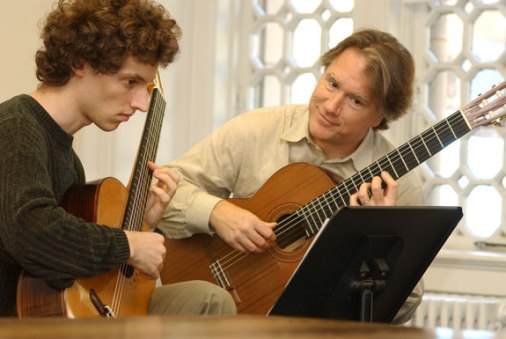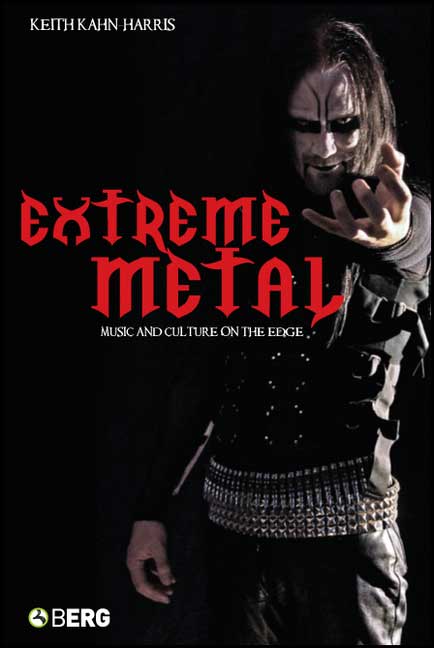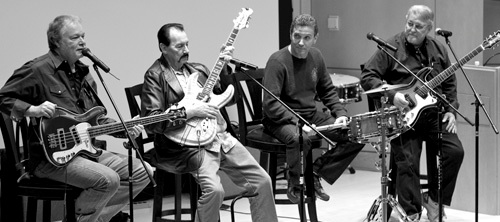Rock and Metal music have constantly been tied to the outcasts of society, the nonconformist artistic visionaries who push the boundaries of music in a non-conventional matter that rivals popular music and outshines it in its various sub-genres, experimental capabilities and lyrical themes that go beyond love, fashion and parties. Such individuals have high standards regarding their education and knowledge which is why your brilliant university teacher will most certainly turn out to be a guitarist or a Rock fan.
I decided to dig information on this subject after stumbling upon a book entitled “Running With the Devil: Power, Gender and Madness in Heavy Metal Music” by Robert Walser which turned out to be a required textbook in Wesleyan University (a private liberal arts college in Connecticut, USA). Other books also emerged quickly such as “The San Francisco Scene in Rock and Roll: It’s History and Stylistic Development, 3rd Edition. Englewood Cliffs, NJ: Prentice”, as I found myself amazed by this higher education / Metal music connection.
Usual courses in music majors include “Introduction to Music Theory” and “A History of Classical Music” but it seemed like some universities are catching up with present times, adding some modern music courses and lectures, especially ones on Metal music.
- Here are some examples of those new courses / lectures
Mcgill University’s Graduate Symposium hosted some talks in 2009 that included one by David Rowat from the University of Ottawa who talked about “Vocal Production and Analytic Contexts in Extreme Metal Music”. There’s also collaboration at Mcgill between the Dean of the Schulich School of Music and the Blue Öyster Cult producer (both McLean and Pearlman respectively) to teach a graduate seminar course in music theory which will mix Bruckner and heavy metal (“from Chord Power to Power Chord”).

Miami University invited first year students to enroll in seminars taught by the college faculty on subjects such as “Technology and History of Heavy Metal Music” which talks about heavy metal’s influence on global society, philosophy, politics, etc.

Another university, UC San Diego states that “experimentation is the DNA of its Department of Music Courses”. Some of their courses include “Popular Music: Heavy Metal Music” where students “will study the various influences on the early performers of this music, examine how the genre expanded and spread to America and the world, trace all the major sub-genres of Metal noticing how Thrash turned into Death which spawned Black Metal, etc., and exam the Heavy Metal identity and what creates authenticity in this genre.”
This next video is a concert of the faculty of percussion instruments at The Moscow musical institute Shnitke as they played a percussion cover of the song Ars Moriendi by experimental band Mr.Bungle.
The same goes with Augusta State University (US) with its “Popular Music and Society” course that includes in its 10th and 12th week the following topics: “Counter Culture: The San Francisco Scene (Jimi Hendrix, Janis Joplin, the Grateful Dead, The Doors, Jefferson Airplane” and “The Eighties: Technology, Heavy Metal and Gender.”University of Colorado also offers a nice course (2010-2011 academic year) entitled “Music in the Rock Era: Special Topics in Heavy Metal.” where studies of the musical style characteristics, lyrical content, innovative performers will be discussed alongside issues of gender, religion, and sexuality.
- Noticeable contributors (among many!)
Keith Kahn-Harris is an Honorary Research Fellow at Birkbeck College, London. He is the author of Extreme Metal: Music and Culture on the Edge (2007) and for several years wrote for the metal magazine Terrorizer.

Deena Weinstein is Professor of Sociology at DePaul University in Chicago. Her recent publications include Heavy Metal: The Music and Its Culture (2000) and various journal articles and book chapters on the structure of rock bands, protest songs, rock criticism, celebrity and religion, among others.
Metal is becoming more and more accessible to the educational world: schools are adding guitar, bass and drums lessons along with piano and flute; universities are offering a wider Rock/Metal oriented music courses (as both elective and major), and graduates with music degrees are considering Metal as a good outlet for experimentation, thesis work, lectures and personal creative projects. After all, Metal is a universal language in the 21st century world.









